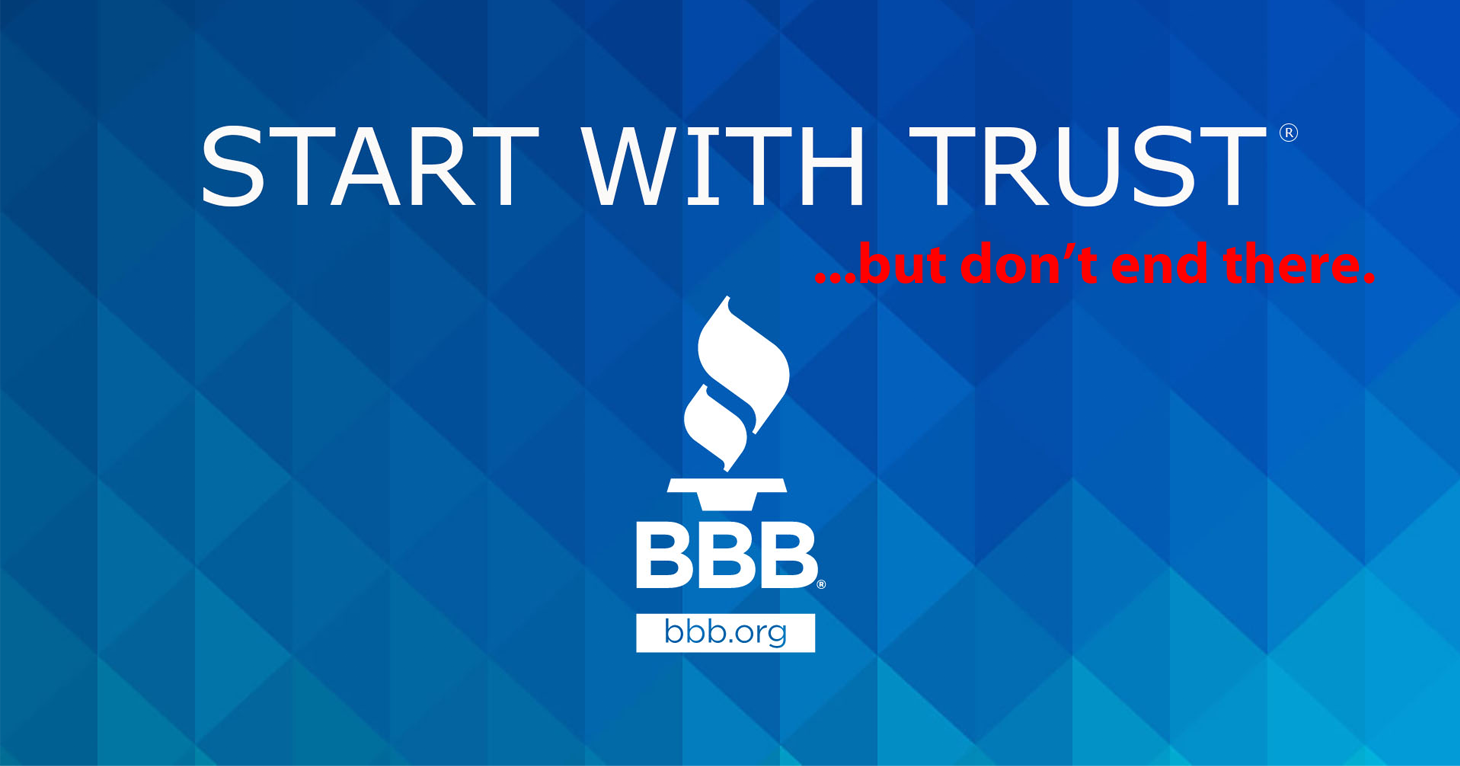
What You Should Know about USANA
Supplement MLM takes down dozens of deceptive claims following TINA.org investigation.
Researching a company shouldn't be one-stop shopping.
|
If you rely solely on the information the BBB has on a company — such as its BBB rating and accreditation status — without looking into the company further, you may be missing out on some important information. Here are five reasons you should always do additional research.
It’s tempting to want to start and end your research into a company at its BBB rating. There’s an irresistible quality to BBB ratings. They’re simple and in a way indisputable. Who can argue that a company with an A+ rating isn’t anything but a reputable firm? But BBB ratings don’t always tell the whole story. For one thing, customer reviews don’t factor into BBB ratings.
This is how a company like Office Depot, which in 2019 agreed to pay $25 million to settle FTC charges it engaged in a tech support scam that extorted millions of dollars from consumers, can have an A- rating despite a star rating of 1 out of 5 stars based on 43 customer reviews. (In reality, the BBB operates as a mediator between aggrieved consumers and companies, with ratings based largely on how a company responds to customers who complain within the BBB’s own system.) An alert on the office supply company’s BBB page notes the government action.
The BBB doesn’t hide the fact that customer reviews aren’t used in the calculation of BBB ratings, placing the disclosure directly under BBB ratings — that is, on BBB pages. But companies making use of positive BBB ratings to promote themselves rarely, if ever, include this disclosure in their marketing materials. Here’s an example from a business loan provider with an A+ rating and a 1-star rating (see below and our ad alert on Reliant Funding here). Companies also sometimes lie about their BBB letter grade.
However, customer reviews are only helpful if they are organic and written by actual customers and not by the company or by people getting paid by the company.
As part of a 2019 TINA.org investigation into Utah-based Multilevel Marketing – a way of distributing products or services in which the distributors earn income from their own retail sales and from retail sales made by their direct and indirect recruits. New U Life — which resulted in TINA.org filing a complaint with the FDA and FTC — TINA.org found that 80 percent of the company’s 5-star customer reviews on the BBB at the time, some 100 reviews, came during a one-week period in March 2019. Several of these “customer” reviews admitted a connection to the company as a distributor for the MLM, whose marketing and sales of an alleged HGH gel, Somaderm, has attracted the attention of multiple government and regulatory agencies, including the FDA. For example, on March 21, 2019, “Jennifer C” left this 5-star review:
Since August 2019, New U Life’s star rating has gone down slightly but is still over four stars based on customer reviews such as the one above. Meanwhile, the company’s letter grade has experienced a nice bump, from an A- to an A+.
In addition, New U Life’s 4+ star rating appears to fall between 4.2 and 4.5 stars, which is something of a sweet spot when it comes to purchasing decisions. According to a 2015 study conducted by Northwestern University, that is the range most likely to induce a purchase.
In response to an inquiry by TINA.org, a BBB spokeswoman said in a statement, “BBB Business Profiles offer more information than most customer review sites, and BBB recommends that consumers read beyond the letter grade or the stars. … Consumers cannot submit anonymous reviews, and they must affirm that they are actual customers of the business and that they did not receive or were not offered compensation.”
Another business in good standing with the BBB is luxury outerwear company Canada Goose. Like Office Depot, Canada Goose was the subject of an FTC investigation in 2019. But there’s no mention of the FTC probe on the company’s BBB page, which boasts an A- rating. Which means there’s no mention of how the FTC raised concerns over the company’s representations about the treatment of geese whose down is used in its apparel. No mention of how Canada Goose removed the advertising claims at issue to address those concerns. And no mention of how the company walked back its traceability claims. (Of note, Canada Goose also had an A- rating on July 30, 2019, two weeks after the FTC sent the company a closing letter marking the end of its investigation.)
Fitness equipment supplier Iron Company is another company the FTC investigated in 2019. Like Canada Goose, Iron Company made changes to its marketing, specifically its made in the USA marketing, to avoid further action by the FTC. And the similarities don’t end there: there’s also no reference to the FTC inquiry on Iron Company’s BBB page and its BBB rating is the same today as it was in early October, days after the FTC closed its investigation: a pristine A+.
The BBB spokeswoman said, “Inquiries that do not lead to government actions are not reported on BBB Business Profiles.”
In a way it’s not surprising that the BBB fails to mention the FTC inquiry into Canada Goose’s marketing on the company’s BBB page because the business is not accredited. In its ratings overview, the BBB states:
BBB routinely checks … government actions before a business is accredited by BBB. BBB does not routinely check … government actions for business that do not seek BBB accreditation, although in some cases BBB learns of these matters through its marketplace research.
So unless a company is accredited, there may be a gaping hole in its BBB profile. The BBB might not disagree with this statement. The organization, after all, tells consumers to “look for the seal” of accreditation and “Trust BBB Accredited Businesses,” which must agree to abide by several standards including a code of advertising. But what consumers may not know is that companies pay annual membership fees to the BBB that can add up to thousands of dollars to be accredited. In return, companies get the right to display the blue BBB seal of accreditation, which the BBB has said increases the likelihood of consumers making a purchase by 83 percent, among other marketing tools.
Paying accredited businesses also seem to be able to stifle bad reviews and prevent consumer complaints from ever appearing on their BBB pages, in ways that non-paying, unaccredited businesses can’t.
Take SmileDirectClub, a teeth alignment company that is under increasing criticism for, among other things, requiring customers to sign a nondisclosure agreement that prohibits them from writing negative reviews if they want a refund outside a return window. An undated alert at the top of the accredited business’ BBB page begins: “The business indicated they would like to speak with consumers before complaints are filed with the BBB.” Clicking “Read More” on the alert provides these additional details: “Over the last 12 months, SmileDirectClub has experienced exponential growth that has resulted in a higher amount of consumer complaints.” What is the BBB doing to address these complaints? Withholding the details of them from consumers. “Due to the volume of complaints filed against this business, BBB only publishes the details for 50% of the total complaints filed,” the alert ends.
In sum, just because a business is not BBB accredited doesn’t mean it’s not worthy of your business. And just because a business is accredited doesn’t mean it is worthy of your business.
The BBB itself notes: “Businesses are under no obligation to seek BBB accreditation, and some businesses are not accredited because they have not sought BBB accreditation.”
The BBB spokeswoman said, “We always encourage consumers to try to work out their dispute with the company first. … Under our policies, a BBB handling complaints for a large company may choose to publish only a portion of the consumer narratives, although all complaints and their resolution are published and are included in the ratings calculation.”
The FTC says it files a lawsuit against a company “when it has ‘reason to believe’ that the law has been or is being violated, and it appears to the Commission that a proceeding is in the public interest.” Historically, the FTC has been successful in then obtaining a favorable settlement (see FTC pyramid scheme cases post-Amway). Yet, unless a settlement is filed in court at the same time as the official complaint, the BBB’s policy is to wait until a settlement is reached before it changes its rating of a company:
A business’s BBB rating is lowered when BBB has knowledge of the following: … Finalized government actions against the business that relate to its marketplace activities and, in BBB’s opinion, raise questions about the business’s ethics or its reliability in providing products/services. Government action deductions consider several factors including how the case is finalized as well as the amount of restitution, penalties or fines imposed against the business.
In other words, a pending federal government lawsuit is not enough to impact a rating. This potentially allows a company sued by the FTC to deceive even more consumers in the period between lawsuit and settlement, which can last months if not years. (Following a 2017 TINA.org investigation into BBB ratings, the BBB increased its maximum deduction for a government action, from 25 to 34 points.)
So while Quincy Bioscience and the FTC and New York state duke it out in court over claims that the company deceptively markets a brain supplement, Prevagen, to improve memory, Quincy Bioscience has an A+ rating and is an accredited BBB business to boot. And this comes after the Second Circuit Court of Appeals determined that the “FTC and New York have made plausible allegations that Quincy’s marketing campaign for Prevagen contained deceptive representations.”
The BBB spokeswoman said the organization waits until a government action is settled or decided so that it has “an objective indication of the merits of the allegations.”
A recent decision by the BBB, however, to revoke the accreditation of Texas-based MLM Neora after the FTC sued the company alleging it operates an illegal pyramid scheme — but before the parties settled — is encouraging.
While the BBB can alert consumers to patterns of complaints filed on its own website (see MyPillow’s buy-one-get-one-free offer), it does not actively monitor the marketplace. It depends on others to do that. Case in point: In June 2019, four months before the FTC reached a $500,000 settlement with the marketers of two aloe vera supplements the agency alleged targeted seniors with false and unsupported claims to treat chronic pain, ulcerative colitis, diabetes and acid reflux, the company had an A+ rating with the BBB. Not only that, the company was accredited. It wasn’t until the FTC announced the settlement with NatureCity — two months later, to be exact — that the BBB revoked the company’s accreditation. Currently, the company has no rating.
What’s the takeaway for consumers? When checking out a company, it’s OK to start with the BBB but don’t end there. The BBB is not a consumer watchdog. In addition to the resources the FTC offers, the Consumer Financial Protection Bureau provides a searchable database with more than 1.5 million consumer complaints as of this writing. Researching a company shouldn’t be one-stop shopping.
The BBB has responded to several of the issues outlined above.
Read more about TINA.org investigations into the BBB here.
Supplement MLM takes down dozens of deceptive claims following TINA.org investigation.
Comparing the amount companies agree to pay to settle deceptive marketing charges with their annual revenue.
The pandemic has also triggered lawsuits over privacy issues with some video conferencing apps, and more.


